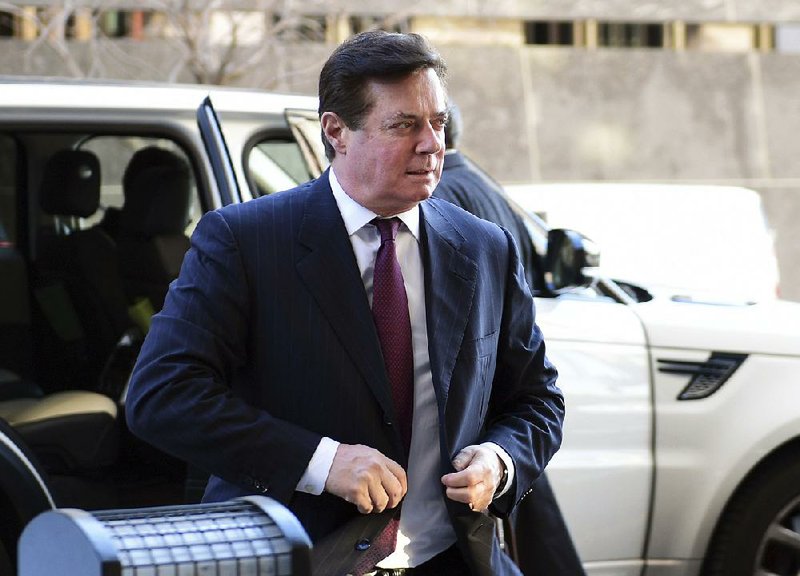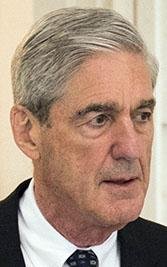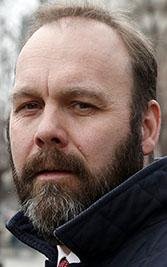Paul Manafort was using fraudulently obtained loans and tax-cheating tricks to prop up his personal finances as he became chairman of Donald Trump's presidential campaign in 2016, according to a new 32-count indictment filed Thursday against him and his business partner.
The indictment ratchets up pressure on Manafort and his longtime associate, Rick Gates, who were already preparing for a trial that could come later this year on fraud and money-laundering charges. Both had already faced the prospect of at least a decade in prison if convicted.
The additional charges had been expected in special counsel Robert Mueller's prosecution of Manafort and Gates. Manafort joined the Trump campaign in March 2016 and served as the campaign chairman from June to August of that year. Gates also served as a top official on Trump's campaign.
Jason Maloni, a spokesman for Manafort, said in a statement Thursday that the former campaign chairman is innocent and stressed that the charges "have nothing to do with Russia and 2016 election interference/collusion."
[DOCUMENT: Read the indictment]
Manafort "is confident that he will be acquitted of all charges," Maloni said.
Mueller accused Manafort and Gates of lying on their income-tax returns and conspiring to commit bank fraud to get loans. The indictment was filed in federal court in Virginia -- a technical requirement because that was where the suspects filed their tax returns.
A court filing indicates that prosecutors initially sought to combine the new charges with the pre-existing indictment in federal court in Washington, but Manafort declined to agree, leading to the possibility of two separate trials in two neighboring jurisdictions.
The new indictment offers a more detailed portrait of what prosecutors say was a multiyear scheme by Manafort and Gates to use their income from working for a Ukrainian political party to buy properties, evade taxes and support a lavish lifestyle even after their business connections in Kiev evaporated.
"Manafort and Gates generated tens of millions of dollars in income as a result of their Ukraine work. From approximately 2006 through the present, Manafort and Gates engaged in a scheme to hide income from United States authorities, while enjoying the use of the money," the indictment charges.
Manafort, with help from Gates, allegedly failed to pay taxes on the money by disguising it as loans from offshore corporate entities and by using foreign bank accounts to make payments to businesses in the United States on Manafort's behalf.
According to the indictment, Manafort's Ukraine income dwindled in 2015, and the scheme took on a new form: getting $20 million in loans based on Manafort's real estate properties in the United States. But to do that, the grand jury alleged, he and his deputy made false claims to banks about their company's income and existing debts.
The indictment describes one bank employee conspiring with Manafort in the fraud. In spring 2016, that unidentified co-conspirator allegedly wrote that a document looked doctored and asked them to "do a clean excel doc" and send that instead.
Another detail in the indictment suggests Manafort was under significant financial pressure even as he ascended to running the Trump campaign in mid-2016.
One bank lender "questioned Manafort about a $300,000 delinquency on his American Express card, which was more than 90 days past due. The delinquency significantly affected Manafort's credit rating score." In response, according to the indictment, Manafort got Gates to supply a letter falsely claiming that he, not Manafort, had borrowed the card to make the purchases and would pay him back.
The filing Thursday comes at a time of uncertainty about when a trial might happen in the first case, or even who the defense lawyers will be.
Last week, U.S. District Judge Amy Berman Jackson criticized both sides for what she called "unacceptable delays" in the case, which still does not have a trial date.
Manafort and Gates were hit with a 12-count indictment in October -- the first criminal charges in Mueller's probe of Russian interference in the 2016 election. That indictment focused not on events in the 2016 race but financial transactions involving work by Manafort and Gates for the Ukrainian political party and their failure to notify U.S. authorities that they were allegedly acting as lobbyists for a foreign government.
The original indictment includes charges of money laundering and failing to register under the Foreign Agents Registration Act, a rare criminal use of a statute more typically used in civil cases. The foreign-agents charge underpins the money-laundering counts in the first indictment.
Manafort and Gates pleaded innocent at the time and were set to stand trial this year, probably in September or October, according to the judge. The new charges could upend that schedule.
Manafort also has sued the Justice Department, claiming that Mueller had overstepped his authority by filing charges unrelated to Russian meddling in the presidential election.
Gates' legal strategy and defense team are still in question. His three lawyers have asked to leave the case, a request the judge is considering. The details of those discussions have not been described publicly, beyond a court filing that said they involve "highly sensitive matters" that would "potentially be prejudicial to [Gates] as well as embarrassing."
For a time, it appeared that Gates' new lawyer would be Thomas Green, a white-collar attorney with a reputation for cutting plea deals on behalf of his clients.
In recent weeks, Mueller has ratcheted up his investigation, charging 13 Russians on Feb. 16 with conducting a social-media disinformation campaign to improve Trump's chances in the 2016 presidential election.
On Tuesday, an associate of Gates pleaded guilty to lying to the FBI in the course of the Russia investigation. Alex van der Zwaan, a former lawyer at a premier law firm, admitted to lying about his contacts with Gates.
Two other people who aided Trump in the campaign or in the White House, former national security adviser Michael Flynn and former campaign foreign-policy adviser George Papadopoulos, have pleaded guilty to lying to the FBI about their foreign contacts. Neither man has been sentenced. Both are cooperating with the investigation.
Mueller also is examining whether Trump obstructed justice through actions including the firing in May of FBI Director James Comey. His team has expressed interest in interviewing the president.
Information for this article was contributed by Devlin Barrett and Spencer S. Hsu of The Washington Post; by Eric Tucker, Chad Day and Jeff Horwitz of The Associated Press; and by David Voreacos, Greg Farrell, Andrew Harris and Paul Cox of Bloomberg News; and by Matt Apuzzo and Michael S. Schmidt of The New York Times.
A Section on 02/23/2018


